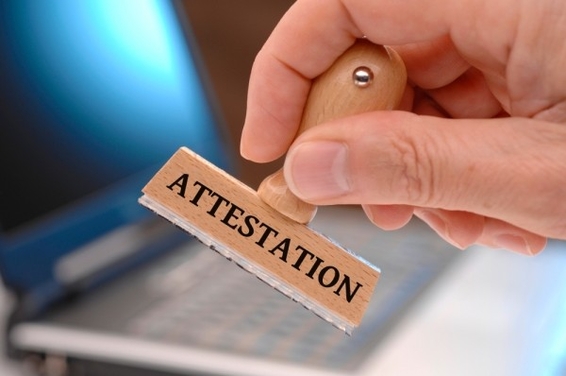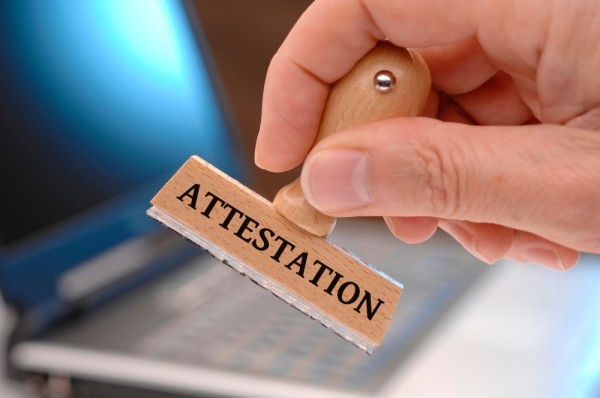The United Arab Emirates (UAE) has become a dream destination for many people seeking promising job opportunities, high-quality education, and a vibrant lifestyle. However, before you can legally work, study, or live in the UAE, you need to go through a process called attestation. UAE Embassy attestation is a procedure that verifies your documents’ authenticity, thereby making them valid and recognized by UAE authorities. This process, though often overlooked, plays a pivotal role in ensuring a smooth transition and securing your future in the UAE.
In this article, we’ll explore the significance of UAE Embassy attestation, the step-by-step process, and how it can set the foundation for a prosperous future in the UAE.
Why UAE Embassy Attestation Matters
UAE Embassy attestation is a critical step for anyone planning to move to the UAE for various purposes, whether employment, education, or family reunification. When you present attested documents, it assures UAE authorities of the authenticity and legality of your qualifications and identity. Here’s why it’s crucial:
-
Legal Recognition of Documents: The UAE has strict rules regarding the use of foreign documents in the country. If you present a document that hasn’t been attested, it is not legally recognized, and you may face difficulties in securing jobs, enrolling in educational institutions, or even renting property. Attestation guarantees that your documents meet UAE standards, enabling a smoother integration into the system.
-
Employment Opportunities: The UAE is home to a highly competitive job market, and many organizations require potential employees to have attested degrees, work experience certificates, and other credentials. UAE Embassy attestation makes it easier to verify your qualifications, increasing your chances of employment. Without attestation, employers might view your credentials as questionable, which can hinder your employment prospects.
-
Educational Pursuits: For students aiming to study in the UAE, attestation of educational documents, such as degrees, diplomas, and transcripts, is mandatory. UAE universities and colleges require attested certificates to ensure that students meet their eligibility criteria and come from recognized institutions.
-
Marriage and Family Reunification: If you plan to bring your family to the UAE, you may need to attest personal documents such as marriage and birth certificates. This step is necessary to apply for family visas, ensuring that your loved ones can legally join you in the UAE.
-
Property and Business Ventures: For those planning to buy property or start a business, attested documents like power of attorney and financial records can be crucial. Attestation provides a legal basis for these activities, granting you rights and protections under UAE law.
-
Preventing Fraud: Attestation also serves as a preventive measure against document fraud. By authenticating documents through embassy attestation, the UAE ensures that all foreign nationals have genuine, verified credentials, thereby protecting the integrity of the country’s systems.
The UAE Embassy Attestation Process
The UAE Embassy attestation process may seem daunting, but understanding the steps can simplify it significantly. Here’s a breakdown of the process:
1. Preparation of Documents
The first step is to gather all necessary documents. The specific documents required will vary depending on your purpose for attestation. Typical documents include educational certificates, marriage certificates, birth certificates, and employment records.
2. Notary Attestation in the Home Country
Once your documents are ready, the first step is to get them notarized by a notary public in your home country. This is an essential step as it serves as a preliminary authentication, confirming the document’s authenticity at a local level.
3. Verification by the Relevant State Department
After notary attestation, the documents are then sent to the relevant state department for further authentication. For instance, educational documents are often attested by the education department, while personal documents like birth and marriage certificates are authenticated by the home department.
4. Ministry of External Affairs (MEA) Attestation
Following state-level attestation, the documents are verified by the Ministry of External Affairs (MEA) or its equivalent in your home country. MEA attestation provides a national-level validation, making the documents ready for UAE Embassy attestation.
5. UAE Embassy Attestation
After MEA attestation, your documents are submitted to the UAE Embassy or Consulate in your home country for attestation. The UAE Embassy verifies the documents’ authenticity one final time, making them valid for use in the UAE.
6. Ministry of Foreign Affairs (MOFA) Attestation in the UAE
The final step is the attestation by the Ministry of Foreign Affairs (MOFA) in the UAE. Once the UAE Embassy attests the documents, MOFA attestation makes them fully recognized in the UAE, allowing you to use them for your intended purpose.
Types of Documents that Require UAE Embassy Attestation
The type of documents that require UAE Embassy attestation depend on the purpose of your visit or stay in the UAE. Below are the main categories:
-
Educational Documents: For those seeking employment or higher education in the UAE, educational certificates like degrees, diplomas, and transcripts are essential. Attestation verifies your qualifications and enhances employability.
-
Personal Documents: Marriage certificates, birth certificates, and police clearance certificates are examples of personal documents that require attestation. These documents are necessary for family visas, residency applications, and other personal matters.
-
Commercial Documents: If you plan to establish a business in the UAE, commercial documents like power of attorney, articles of incorporation, and financial records need to be attested. Attestation of commercial documents protects your business interests and ensures compliance with UAE laws.
-
Medical Documents: For those with specific health conditions, attesting medical certificates may be necessary. This is particularly relevant if you’re applying for medical leave or specialized healthcare services in the UAE.
Benefits of UAE Embassy Attestation
UAE Embassy attestation not only fulfills a legal requirement but also brings several other advantages that can secure your future in the UAE:
1. Ease of Job Placement
As a country that values professional qualifications, UAE employers are keen on hiring individuals with attested educational documents. With UAE Embassy attestation, employers can verify your skills and expertise with confidence, giving you a competitive edge in the job market.
2. Faster Processing for Family Visas
Attested documents help streamline the family visa process, allowing you to reunite with your loved ones more easily. Family reunification is a significant part of life for many expatriates, and proper attestation ensures that the process is straightforward and hassle-free.
3. Reduced Legal Risks
Using non-attested documents can lead to legal complications, fines, or even deportation. By completing UAE Embassy attestation, you ensure that all your documents are in line with UAE legal requirements, reducing the risk of penalties.
4. Access to Education Opportunities
For students, UAE Embassy attestation opens doors to reputable educational institutions, enabling them to pursue higher education and obtain UAE-recognized qualifications. It not only fulfills admission requirements but also positions students for success in their academic pursuits.
5. Enhanced Credibility in Business
Attested documents provide legal backing for business transactions and protect your interests. If you plan to engage in business in the UAE, attestation establishes credibility and builds trust with local partners and clients, which is essential for long-term success.
6. Peace of Mind
Above all, UAE Embassy attestation provides peace of mind. Knowing that your documents are fully authenticated and legally recognized allows you to focus on your goals without worrying about potential legal complications or delays.
Common Challenges in UAE Embassy Attestation
While UAE Embassy attestation is beneficial, the process can present challenges:
-
Time-Consuming Process: Attestation involves several steps across different departments and agencies, which can be time-consuming. Planning and starting early can help you avoid delays.
-
Costly Fees: The attestation process may incur fees at different stages, including notary fees, MEA fees, and embassy fees. It’s wise to budget for these costs and consider working with professional agencies if necessary.
-
Varying Requirements by Country: Requirements and processes may differ from one country to another, which can complicate the procedure. Familiarize yourself with the specific requirements of your home country to avoid surprises.
Final Thoughts
UAE Embassy attestation is a vital step for anyone aiming to secure a future in the UAE. Whether you’re pursuing a career, higher education, or business opportunities, attestation ensures that your documents are legally recognized, providing a solid foundation for success. By understanding the process and its benefits, you can navigate the attestation process more effectively, making your transition to the UAE smoother and stress-free.
In a rapidly growing country like the UAE, where authenticity and compliance are highly valued, UAE Embassy attestation not only fulfills legal requirements but also opens up a world of opportunities, securing your place in a country brimming with potential.





